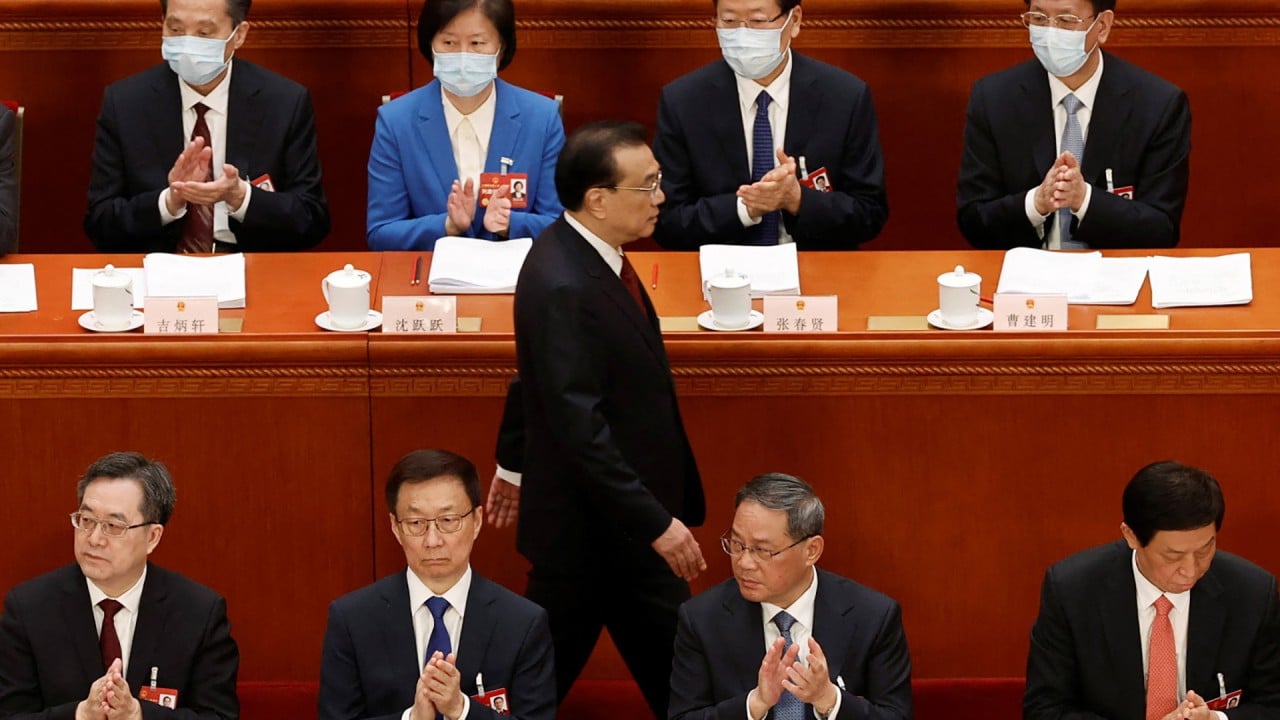
Economic shake-up aims to ensure China can continue its rise
- Focus on financial headwinds, data security and technology gap key to building modern socialist country and foiling US containment
Restructuring of core elements of China’s economy has reset the stage for building a modern socialist country and foiling containment of China’s rise by the United States. Governance reforms are focused on financial stability in the face of headwinds, on data security and the technology gap.
It is the third administrative and political restructuring under the leadership of Xi Jinping. Relevant party reforms are expected to be revealed at the end of the current “two sessions” of China’s legislative and advisory bodies.
The financial reforms announced this week reflect market disruption or crashes over the past few years and fragmented oversight of markets, banking and insurance. Government has acknowledged the need for better risk management and tighter supervision.
But so long as there are small regulatory kingdoms, it is inevitable that grey areas, silos and turf wars will undermine coordination and oversight. Hence part of this restructure basically combines banking and insurance under a super-regulator, and strengthens the capital market regulator with the mandate to oversee both stocks and bonds in a bid to clean up chaotic debt issuance.
The goal is to restore discipline, improve market conditions and give start-ups a more efficient avenue for raising much-needed capital.
China is in the company of other major economies in shaking up data security with a National Data Bureau under the National Development and Reform Commission. This is understandable, given the sensitivity of storage, transfer and use, especially for the tech industry.
In China’s case it is also part of a push for better governance of big data. Too much data on citizens, too many data collection and storage silos, turf wars and regulations, are to be found in different departments all over China. Inefficiency is compounded by poor data exchange.
Contrary to some Western media perceptions that improved oversight is about increased surveillance, it has a bigger underlying political logic.
In another major restructuring of state and party institutions, the Communist Party will set up a central committee to oversee the science and technology sector, the front line of the battle against containment. China urgently needs a breakthrough, given a generational technology gap between a rising challenger and a dominant power.
China’s debt-saddled local governments underscore its moderate GDP target
Preserving the gap is the US’ best bet to ensure China never challenges US hegemony. No adjustment of Chinese foreign policy will ever close the gap.
More detail is needed of the restructuring. It needs to focus on administrative support for scientists, freeing them to concentrate on science and technology.
The ministry needs to see itself in a different light, as a facilitator and service for scientists rather than as manager or supervisor.


